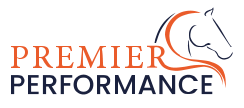in basket
TOP OFFER - SUMMER20 - 20% OFF* and 4 FREE seasonal products! *Excludes smaller pack sizes, treats, feed and mash.
L-Arginine Supplementation in Horses

What is L-arginine?
L-arginine is an amino acid, which was discovered in 1895 and is involved in several metabolic pathways in the body, as well as being used to build protein in the body. Proteins are composed of amino acids that are individual units that combine to make up the protein. There are 22 amino acids that are structured in different ways to make proteins of different sizes and shapes and with a variety of functions. An example of a muscle protein is myosin, which helps with muscle contraction. Another example of a protein is haemoglobin, which carries oxygen in the blood. The horse needs to have protein in his diet because although some amino acids are made in the body others are not, and these are called the essential amino acids.
L-arginine is known as a semi-essential amino acid, in that the body normally produces it in adequate amounts, but supplementation may be required at times of poor nutrition, ill-health or exercise. Whilst we know that L-arginine is necessary for the synthesis of many biologically important compounds in animals, recent attention has been given to its conversion into nitric oxide (NO) in the body.
L-arginine Supplementation
Dietary supplementation of L-arginine in horses has been shown to increase blood plasma levels of L-arginine at both 0.025 and 0.0125 percent of bodyweight, which translates to 62.5g and 125g for a 500kg horse. Current recommendations are that supplementation at higher than 0.025 percent of bodyweight can impact on the absorption of other amino acids.
The Proposed Benefits of L-arginine Supplementation
The beneficial effects of L-arginine supplementation in several species has led to increased interest in its use as a nutraceutical in horses. A nutraceutical is a dietary supplement that may provide medical or health benefits, including the prevention and treatment of disease.
Cardiovascular
As a precursor to NO, L-arginine contributes to vasodilation (relaxation of blood vessels), which consequently contributes to lowering of blood pressure, enhanced blood circulation and improved cardiac function. As the body ages, it produces less NO, which can cause the blood vessels to become less elastic and can reduce the flow of oxygenated blood to vital organs. As such, L-arginine supplementation has been seen to benefit human patients with high blood pressure, ease the clinical signs of angina (chest pain due to restricted blood flow to the heart) and an increase in exercise capacity. It has also been reported to reduce the clinical signs of congestive heart failure (CHF) in human patients, with improved blood flow observed and an increase in the duration of exercise that patients with CHF could undertake. In healthy individuals, L-arginine is reported to enhance overall cardiovascular health, blood flow and act as a potential preventative agent in heart disease.
Exercise
L-arginine supplementation has been reported to enhance physical exercise capacity in some individuals, particularly those that are unfit or have an illness or injury affecting their ability to exercise. L-arginine is required for the synthesis of creatine, which is an essential energy source for muscle contraction. In human athletes, L-arginine supplementation has been shown to delay the onset of fatigue (or time to exhaustion), as well as reducing blood pressure, increasing oxygen uptake and increasing muscle performance and muscle strength, suggesting that it may have beneficial effects on exercise performance. L-arginine has also been seen to decrease inflammation and enhance muscle regeneration in animals. However, other studies have reported no effects, which appears to be attributable to the level of L-arginine supplementation and the addition of other supplements. Supplementation of L-arginine has also been shown to improve antioxidant levels during exercise, which are often depleted and can lead to ill-health in athletes. Studies have suggested that L-arginine supplementation may have a beneficial impact on thermoregulation in horses.
Infection & immunity
L-arginine supplementation has been seen to enhance wound healing in both human patients and animals, reduce post-operative infection risk and decrease the length of hospitalisation in humans. It has also been reported to enhance overall immune function in human patients with critical injuries, illness or recovering post-operatively. Given this immune-boosting effect, L-arginine has also been reported as beneficial in cancer patients, which is likely attributable to its role in immune function that may aid overall recovery as studies have shown L-arginine to be depleted in human patients during significant illness, trauma and post-operative healing. L-arginine is reported to support healthy immune function, thus potentially acting as a protective agent against some diseases.
Respiratory
NO acts to dilate the vessels in the lungs that carry blood to and from the heart, as well as playing an important role in regulating airway function by signalling the relaxation of the airways. As a precursor to NO, L-arginine supplementation has been seen to increase NO in the lungs and decrease the severity and frequency of asthma in humans. Work to evaluate the effect on L-arginine supplementation on asthma in horses has not been conducted to date but would be beneficial. Moreover, in horses with exercise induced pulmonary haemorrhage (EIPH), which occurs as a result of high pressure across the tiny blood vessels in the lungs, it is possible that NO may help alleviate this. However, research is required to assess this in horses.
Reproduction
L-arginine supplementation has been seen to have beneficial effects on reproduction in many species, including horses. It has been reported to increase blood flow to the reproductive tract in mares before and after birth, as well as improving the uterine environment post-foaling. The abundance of L-arginine in horse milk suggests that it seems to be required in larger proportions in foals compared to other species.
Gastrointestinal Tract
As a precursor to NO, L-arginine has been repeatedly shown in other species to protect gastric mucosa (the inner lining) from damage, including gastric ulceration. Reports have also demonstrated the role of NO in accelerating the healing of gastric ulcers and have shown L-arginine supplementation to ulcer healing. It has also been suggested that L-arginine many be beneficial in colic cases to help reduce spasms and ischemia where the vascular areas of the intestine have been affected.
Insulin Sensitivity
L-arginine supplementation has been seen to have beneficial effects on reproduction in many species, including horses. It has been reported tIn humans, diabetes is associated with a reduction in blood plasma levels of L-arginine. There is evidence that L-arginine supplementation may be an effective way of improving endothelial function in humans with diabetes, but also a low intravenous dose of L-arginine has been shown to improve insulin sensitivity in obese, type 2 diabetic human patients. Oral supplementation of L-arginine also showed a significant improvement in in insulin sensitivity in humans with diabetes. This warrants further investigation in horses as this may have the potential to help in the management of horses with insulin resistance and/or equine metabolic syndrome. o increase blood flow to the reproductive tract in mares before and after birth, as well as improving the uterine environment post-foaling. The abundance of L-arginine in horse milk suggests that it seems to be required in larger proportions in foals compared to other species.
Brain & behaviour
In the brain, NO regulates blood flow and oxygenation and is also involved in the control of movement. At physiological levels, NO also appears to have neuroprotective properties in that it protects the nervous system from damage. NO is essential to learning and memory and is also believed to be involved in social and emotional behaviour.
NO also impacts on the endocrine system, which regulates a range of bodily functions through the release of hormones, by controlling hormone secretion. Research to examine the effects of L-arginine supplementation on behaviour is limited, but given the role NO has in the brain and on behaviour, it would be advantageous to investigate this.
Summary
The benefits of L-arginine supplementation appears to be wide-ranging, particularly due to its conversation to NO. There have been a number of studies conducted in humans and other animals that suggest the possibility of similar outcomes in horses. However, further research in horses is required.
Article written for Premier Performance by Professor Jo-Anne Murray.






